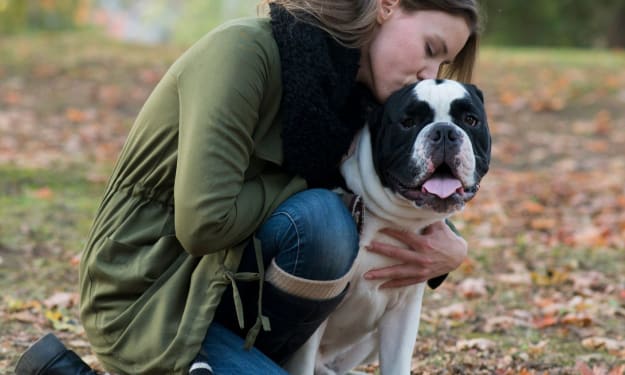Tips for Adopting an Older Dog
If you have decided to add an old dog into your life, you need to make sure that you are ready.

Adopting an older dog can be a great thing. I wrote an article about the reasons why you should consider adopting an older dog. If you haven't had a chance to read it, you can check it out here.
If you decide that adopting an older dog is the right choice for you and your family, you need to have everything ready before you come home with a dog! Though this is true for every puppy and dog, there are some special things to consider when bringing home an older dog.
Here are some tips to help you get ready.
You are going to have to be patient with your new pet. Most older dogs take a little longer to transition to a new home, than younger ones. They may have spent years with the same person in the same house, and it is just going to take some time for him or her to get used to you and your home.
Because of this, you are going to need to give him or her plenty of space. Though love and attention are great, especially for those who have spent plenty of time in a kennel, it can be overwhelming for your new dog. In fact, you may notice that your new dog sleeps more than you would imagine.
For this reason, you want to make sure that your new dog has a place where he or she can feel safe, such as a kennel or even a dog bed on the floor. Then, when he or she is there, you need to make sure that everyone leaves him or her alone.
It is also important to remember that your dog may not act exactly like you expect him or her too. Your dog may be grieving the only home that he or she knows, so don't be surprised when you find out that the happy dog that you picked up, isn't as cheerful at your home. In time, he or she may come around and be excited to see you.
If you picked him or her up at a shelter, your new dog may have been scared and will act differently when he or she becomes comfortable in your home. He or she may have never barked in the kennel, but seems to do a lot of barking now that he or she is in a home!
Make sure that your home is ready for your new dog. Though most people think about puppy-proofing their homes, the truth is that all dogs need to have a safe place to call home. This means cleaning up the house and picking up anything that doesn't need to be on the floor. You should hide your cleaning supplies and other things that can be toxic to pets.
When you bring home an older dog, you also need to look around to see what may give him or her trouble. Do you have slippery steps that need something on them? You may want to place rugs on your slippery floors to help a dog with arthritis move around better.
And your children are too! Many children get so excited over a new dog that they can easily overwhelm him or her. Make sure that they know that your new dog may hurt a little bit, and they need to be extra gentle when petting and playing with him or her.
You need to be ready also! Too many people get an older dog as a way to replace the old dog that they just lost. Then, when this dog isn't the same as the old one, they find themselves getting heartbroken all over again.
Choose a good senior food. Senior food is formulated for the needs of older pets, so you should always make sure that you find a food that is perfect for your new dog.
Hopefully, he will come with the food that he or she is used to. If you are able, you may just want to keep him on it, since he or she is probably doing well on it. If you want to feed him or her something better, make sure that you do it gradually.
It can take some time for an older dog to adjust to your new home. This may be even more true if her or she has always lived with one person and suddenly is a part of a family with children! You need to make sure that your home, children, and you are ready.
Your new dog is going to need his or her own space, which may include a crate or a bed that he or she can go whenever needed. Your children are going to have to be gentle with him or her, because your new dog may have some arthritis, which can be painful at times. You also need to be ready, because this new dog isn't going to be the same as the one that you just lost!
***
Previously published on Medium and/or Newsbreak.
About the Creator
Shelley Wenger
Small town country girl in southern Pennsylvania. Raising two boys on a small farm filled with horses, goats, chickens, rabbits, ducks, dogs, and a cat. Certified veterinary technician and writer at Virtually Shelley.






Comments
There are no comments for this story
Be the first to respond and start the conversation.